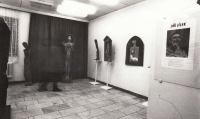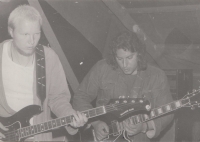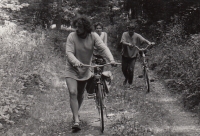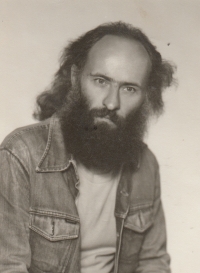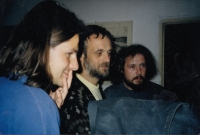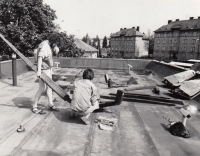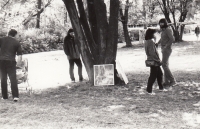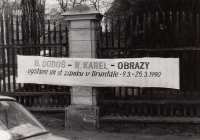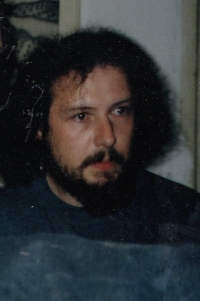We escaped elsewhere, not participating in the public life
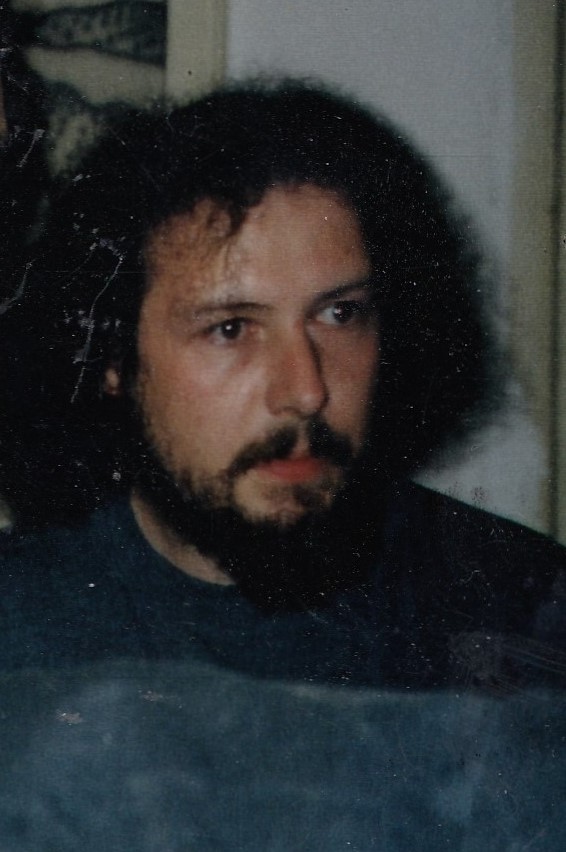
Stáhnout obrázek
Roman Karel, born March 1, 1964 in Rýmařov, grew up in the family of Jiří and Jarmila, née Slouková. During the second renewal of Scouting in Czechoslovakia, his older brother and he were members of a Scout group. Thanks to his father, a teacher of history, Czech language and also archeology, he took part in the explorations of the Hrádek medieval fort and the Slavonic settlement by the Podolský stream. He has been interested in fine arts since childhood and has also gravitated towards music thanks to his father. He started his first band ‘Inventář’ (Inventory) in high school. When growing up, he was shaped primarily by the influence of his father and his uncle Bedřich Karel, who associated with the dissent environment and with the Democratic Initiative during the Normalization period. After graduation Roman started working in the Hedva company in Rýmařov and later changed to Okál where he worked as a quality inspector. He attended concerts of underground bands and illegal exhibitions in Uničov and Sovinec in the 1980s. Together with his friends he founded the Amateur Artists Club (KAV) shortly before the revolution. In 1989 he signed the ‘Několik vět’ petition. He joined the Civic Forum in Rýmařov in the first days of the Velvet Revolution and became a member of its coordination center. He currently plays drums in the band Sibérija and helps run the Octopus gallery in Rýmařov.
